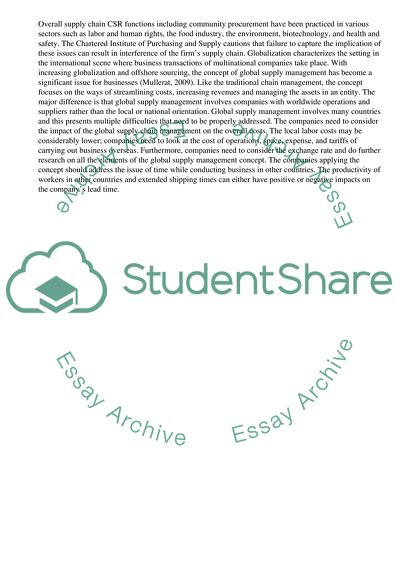Cite this document
(Global Supply Chain: Corporate Social Responsibility Research Paper, n.d.)
Global Supply Chain: Corporate Social Responsibility Research Paper. Retrieved from https://studentshare.org/management/1743324-global-supply-chain-corporate-social-responsibility
Global Supply Chain: Corporate Social Responsibility Research Paper. Retrieved from https://studentshare.org/management/1743324-global-supply-chain-corporate-social-responsibility
(Global Supply Chain: Corporate Social Responsibility Research Paper)
Global Supply Chain: Corporate Social Responsibility Research Paper. https://studentshare.org/management/1743324-global-supply-chain-corporate-social-responsibility.
Global Supply Chain: Corporate Social Responsibility Research Paper. https://studentshare.org/management/1743324-global-supply-chain-corporate-social-responsibility.
“Global Supply Chain: Corporate Social Responsibility Research Paper”, n.d. https://studentshare.org/management/1743324-global-supply-chain-corporate-social-responsibility.


